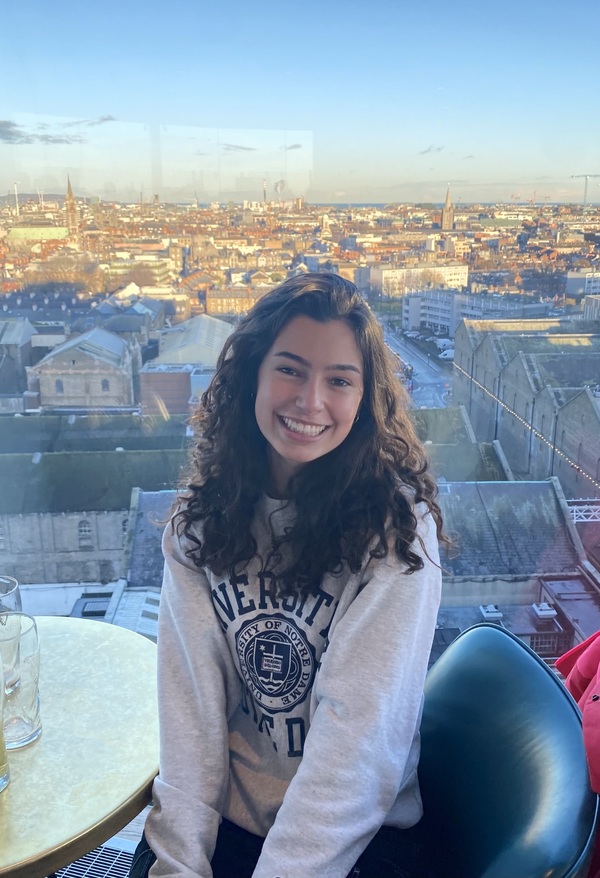
Nadia Nosek (‘24) knew from her start at Notre Dame that she wanted to study neuroscience. But she also knew she didn’t want to be pre-med. “I had no clue what I was going to do,” said Nosek. “I just knew I wanted to take more neuroscience classes!”
Neuroscience research came to Nosek “at the perfect time,” she said. During her sophomore year, she joined the Sleep Stress and Memory Lab (SAM Lab), directed by Jessica Payne. Payne is a professor in the Department of Psychology.
In the lab, Nosek shows participants negative and neutral images, and helps perform a memory test to see if participants’ age and sleep quality affect their memory differently for negative and neutral information.
“I finally thought … ‘this is the type of work I’ve been looking for in science.’ Without the experiences here, I wouldn’t have known that my interests and skill sets lend themselves to research,” said Nosek.
As a team lead, Nosek organizes a group that processes the quantitative data about the participants' brain activity from the study.
“I taught myself Python, and I learned R (computer languages) as a part of my honors thesis this year to help organize and visualize data. I am interested in brain and tech interfaces as a possible graduate course of study, so I want to learn as much as I can now, and I have really enjoyed learning python so far,” she said.
In addition to her research with Payne, Nosek also works in the lab of Diane Lane, assistant teaching professor in the Department of Biological Sciences, using a mouse model to study drug addiction. Nosek enjoys working with the 3D printer to create a prototype of a device they intend to use in the lab.
As a senior, Nosek has also been balancing her time in research labs with writing her honors thesis. Nosek works to “show participants negative and neutral images, and perform a memory test to see if participants’ level of optimism changes how they move their eyes to look at images, and how well they remember the images later on,” she said. Nosek hopes to get her thesis published in the future.
After graduating in May, Nosek will work at a lab studying traumatic brain injury at Boston Children’s Hospital. Until then, she is busy working as a tour guide, rock climbing, tutoring elementary school kids in reading, and being a teaching assistant for a neuroscience class. She hopes to continue her passion for research with a doctorate in neuroscience someday, and maybe even become a professor.
“I am such a neuroscience nerd,” laughed Nosek. “It’s true. I am just so grateful that the neuroscience faculty are so cool and supportive, and I’m grateful that they have pushed me to really get where I am today.”